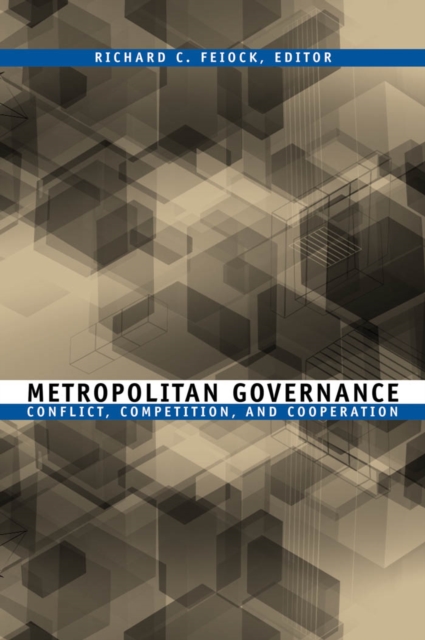
Metropolitan Governance : Conflict, Competition, and Cooperation PDF
Edited by Richard C. Feiock, Richard C. Feiock, Richard C. Feiock, Richard C. Feiock
Part of the American Governance and Public Policy series series
Description
Metropolitan Governance is the first book to bring together competing perspectives on the question and consequences of centralized vs. decentralized regional government. Presenting original contributions by some of the most notable names in the field of urban politics, this volume examines the organization of governments in metropolitan areas, and how that has an effect on both politics and policy.
Existing work on metropolitan governments debates the consequences of interjurisdictional competition, but neglects the role of cooperation in a decentralized system.
Feiock and his contributors provide evidence that local governments successfully cooperate through a web of voluntary agreements and associations, and through collective choices of citizens.
This kind of "institutional collective action" is the glue that holds institutionally fragmented communities together. The theory of institutional collective action developed here illustrates the dynamics of decentralized governance and identifies the various ways governments cooperate and compete.
Metropolitan Governance provides insight into the central role that municipal governments play in the governance of metropolitan areas.
It explores the theory of institutional collective action through empirical studies of land use decisions, economic development, regional partnerships, school choice, morality issues, and boundary change—among other issues. A one-of-a-kind, comprehensive analytical inquiry invaluable for students of political science, urban and regional planning, and public administration—as well as for scholars of urban affairs and urban politics and policymakers—Metropolitan Governance blazes new territory in the urban landscape.
Information
-
Download - Immediately Available
- Format:PDF
- Pages:272 pages
- Publisher:Georgetown University Press
- Publication Date:23/08/2004
- Category:
- ISBN:9781589013728
Information
-
Download - Immediately Available
- Format:PDF
- Pages:272 pages
- Publisher:Georgetown University Press
- Publication Date:23/08/2004
- Category:
- ISBN:9781589013728










